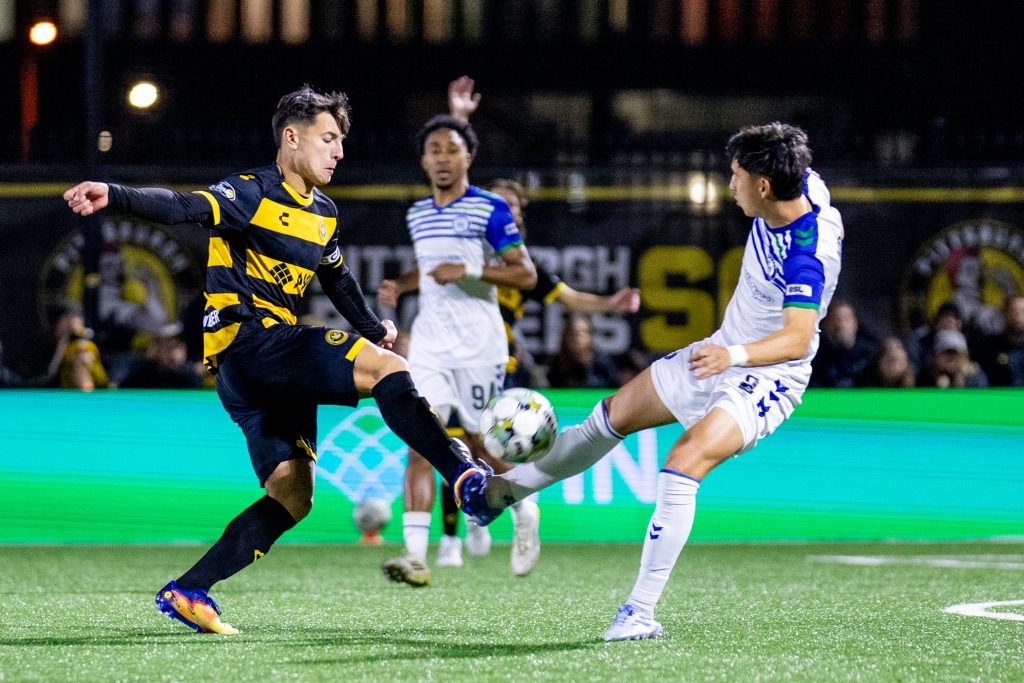(The following is written from our interview with Billy West on October 6, 2025. You can see the entire interview below)
When Billy West describes his childhood, he doesn’t talk about fame or studios or the glow of a microphone. He talks about noise — the constant hum of ideas and sounds that filled a kid’s mind before anyone knew what autism was.
“I was just a little freak,” he laughed. “There was no word for autism in the ’50s. I couldn’t sit still. I’d make noises, imitate voices, and nobody knew what was going on.”
For West, sound became a survival mechanism. Television was black-and-white, the Three Stooges played before school, and replay didn’t exist — so he learned to re-create what he heard. “Everything I do now, I was already doing when I was eight. If I ever listened to anybody who told me to get a real job, I wouldn’t have a life.”
That “real job” turned out to be giving life to some of the most beloved voices in pop culture: Ren & Stimpy, Doug and Roger Klotz, Bugs Bunny in Space Jam, and an entire cast of Futurama characters including Fry, Professor Farnsworth, and Dr. Zoidberg.
Breaking through the noise
West’s journey to voice acting wasn’t scripted. He drew, painted, played trumpet, sang, and eventually realized his imagination came through most clearly in sound. “All my little friends lived in that little box in the corner of the room,” he said of the family TV. “There were only three channels, and if you missed something, it was gone forever. So I learned to reproduce it — to own it.”
That instinct for mimicry and rhythm carried him from Boston’s music scene to the radio airwaves, and eventually onto The Howard Stern Show, where he built notoriety as a fearless comic voice. But even as fame grew, professionalism stayed his compass.
When Ren & Stimpy imploded behind the scenes, West refused to quit in solidarity with the show’s ousted creator — not out of ego, but responsibility. “I was a hired gun,” he said. “I just wanted to do good work. People painted me as disloyal, but I knew my job was to show up 1,000 percent.”
History later vindicated him, yet the pain of being misunderstood lingered. “Everybody was calling me the backstabber,” he admitted. “I had to live with that. But I kept working.”
The comeback of character
Work, indeed, became its own redemption. West’s sincerity and relentless curiosity led him to Space Jam, where he voiced Bugs Bunny opposite Michael Jordan. “I auditioned, got the part, and met Jordan at the wrap party,” he said. “He reached over six people to shake my hand and said, ‘Billy.’ He was mighty.”
The humility still surprises him. “After that, I went right back to radio. I was blowing the doors off the place, but management barely noticed. I thought, I’m creating magic in there and you can’t even say thanks?” When corporate suits tried to make him personally liable for FCC fines, he walked away — another reinvention born of integrity.
Then came Futurama, a show as eccentric and heartfelt as West himself. Even while Fox kept pre-empting it for NFL broadcasts, the series endured through pure audience love. “I told John DiMaggio before it premiered, ‘Enjoy every second. It goes by at light speed.’ ” He was right. The show became a generational touchstone, and his Nixon head — gruff, absurd, and unforgettable — still plays on loop at the Nixon Library. “I won,” West laughed. “All those years later, I won.”
Art, empathy, and evolution
Today, convention halls are his comfort zone. “There isn’t a narcissist within twenty miles,” he said. “No toxic masculinity, no ego — everyone’s kind. Most of them are on the autism spectrum. They’re compassionate, loyal, sincere. Honestly, I think it’s the next step in human evolution.”
He speaks of art not as entertainment but as empathy — the thing that keeps humanity from unraveling. “Nature keeps making interventions in the human condition,” he said. “I think these artistic minds are here to pull society upward.”
At one convention, a fan built a full wooden podium with a jarred Nixon head inside and asked him to sign it. “I said, ‘This is the greatest thing I’ve ever seen.’ I signed the podium. Years later, my voice is still echoing through Nixon’s library. That’s poetic justice.”
Gratitude over glamour
Despite four decades of acclaim, West rejects celebrity idolatry. “When you start believing your own hype, you collapse under the weight of it,” he said. “Celebrity doesn’t mean anything to me. My heroes are artists, scientists, and people who save lives. Just because you’re famous doesn’t make you a hero.”
His heroes, instead, are the storytellers and dreamers who never stopped drawing, building, or believing. “Every time I meet a new voice actor, I tell them what one of my idols once told me: We’ve been saving a seat for you. That’s the whole point — there’s always room for another voice.”
For a man who once felt like an outsider, Billy West has become a symbol of creative belonging — proof that the world’s “little freaks” can, in fact, reshape culture.
“I was lucky,” he said simply. “All the things people thought were weird about me turned out to be the things that kept me alive.”




